Solving Global Issues
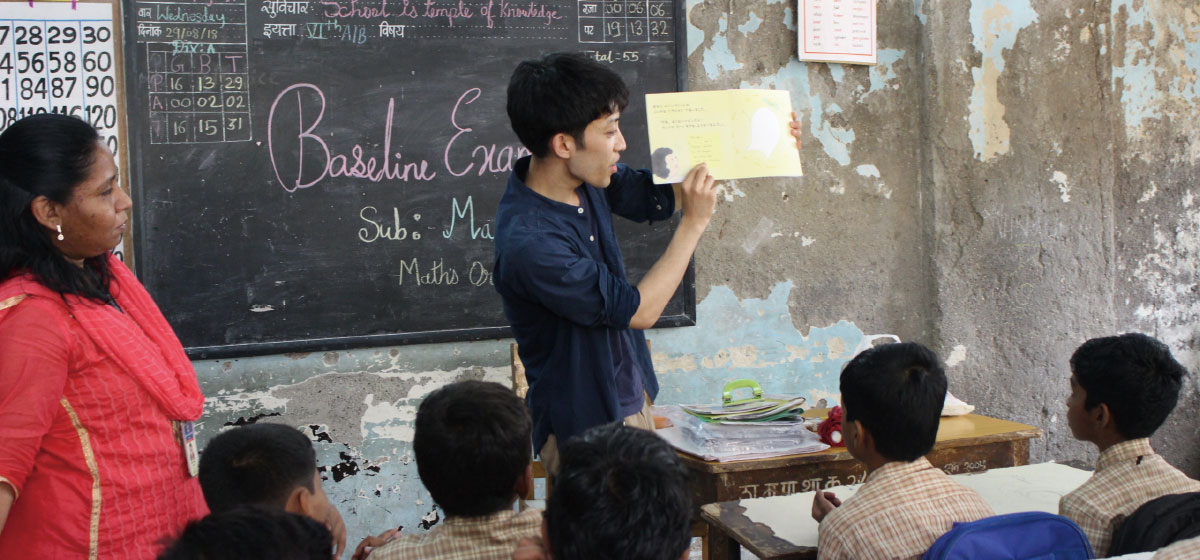
Reading a picture book to promote the importance of safety and hygiene for children in India
Design for SDGs: Creative Solutions to Sustainable Development

By actively collaborating with local communities, NPOs, industries, universities, and international organizations, the SDGs Design Unit of the Faculty of Design positions itself as a social platform pursuing “solutional Design” to social issues.
As a recent project, the unit conducted the 2nd SDGs Design International Awards 2020 on the theme "Overcoming the Pandemic, Design for Evolution" to encourage students across the globe to apply their design skills to create new, bold, and innovative solutions.
Tackling the SDGs
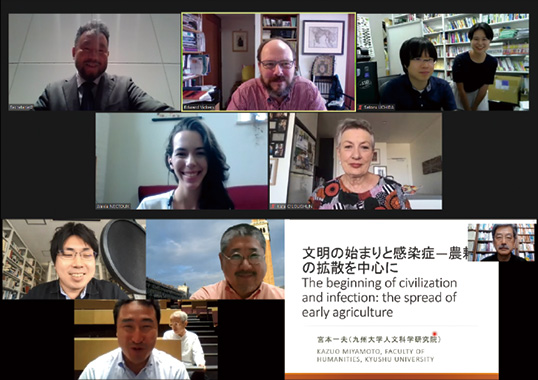
The Kyushu University Institute for Asian and Oceanian Studies (Q-AOS), established in April 2019, is tackling the SDGs by creating a new academic field that will open the future and contribute to the resolution of social issues in Asian and Oceanian countries, from the SDGs to issues expected to be faced tomorrow.
In September 2020, Q-AOS held a symposium on the theme of “Living with Infectious Diseases: What is a sustainable society after COVID-19?” The symposium featured interdisciplinary sessions and lectures by those who are closely involved in six main areas of activity of the organization.
The speakers included well-known researchers around the world and top experts at the forefront of industry in addition to students, faculty and staff of Kyushu University.
Q-AOS is committed to interdisciplinary exchanges, integrated research, and educational activities for the further promotion of the SDGs and “Future SDGs.”
Ubiquitous CO2 Capture for Mitigating Climate Change and Beyond
Despite worldwide efforts, reductions in carbon dioxide emissions alone are insufficient for suppressing global warming to 1.5 °C to manage climate change as recommended by the IPCC*1.
To overcome these shortfalls, negative emission strategies such as through technologies that remove CO2 from the atmosphere—known as direct air capture or DAC—are essential, and Associate Professor Shigenori Fujikawa of the I2CNER*2 believes polymer membranes hold the answer.
“High-performance membranes may contribute to the new technology,” says Fujikawa. Fujikawa's group calculated that multiple stages of air separation by membranes with state-of-the-art performance can produce a concentrated CO2 gas stream of nearly 40% CO2 starting from air with only 0.04% of CO2, resulting in net negative emissions even when considering the energy used.
By developing membrane-based systems that can be deployed almost anywhere, the researchers are aiming for “Ubiquitous CO2 Capture” from the atmosphere for recycling into valuable chemicals.
- *1 Intergovernmental Panel for Climate Change
- *2 International Institute for Carbon-Neutral Energy Research
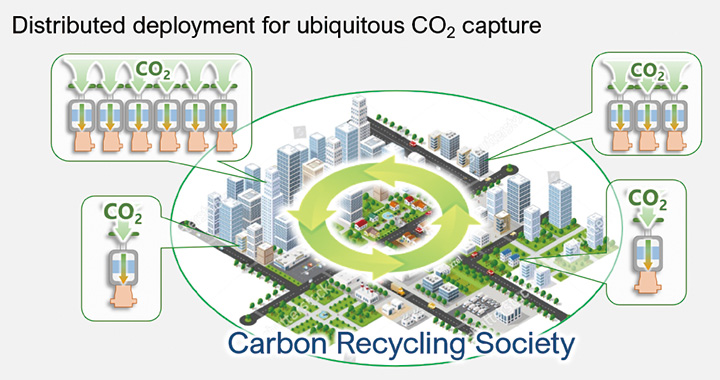
Joining the Global Fight on Plastic Waste
Kyushu University represents an alliance for research on marine plastics pollution in Southeast Asia, namely Thailand, and is working together with seven other organizations including the Japan Science and Technology Agency (JST) and Japan International Cooperation Agency (JICA).
The university has been selected for joint international science and technology cooperation for global issues as part of the government-backed initiative Science and Technology Research Partnership for Systainable Development (SATREPS) (*).
- (*)Science and Technology Research Partnership for Sustainable Development
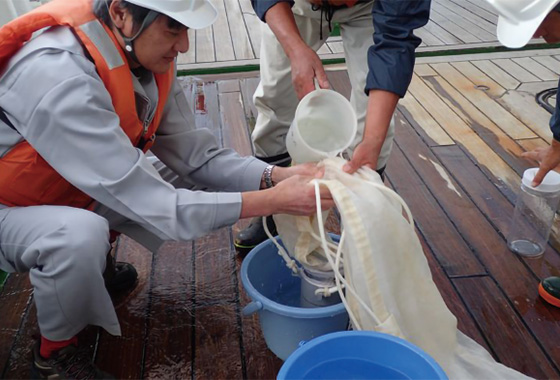
Delivering to the World Webinars That Connect Asia Kyushu University Asia Week 2020
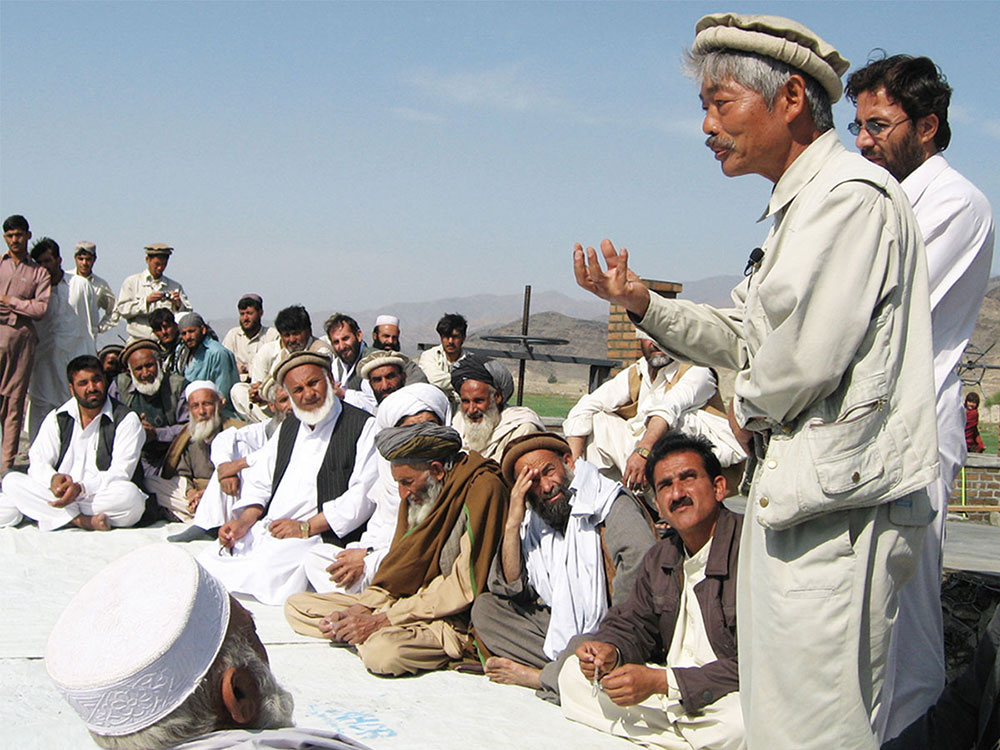

With the concept of "Creating with Asia," Fukuoka City holds an Asian Party every year from September to October, and it bustles with lively events where you can experience the present of Asia as a social gathering platform for people, goods, and information in Asia.
As the first attempt at Kyushu University, Asia Week 2020 was held in a webinar format from September 1 to 12, 2020, to connect with Asia, talk about Asia, and experience Asia.
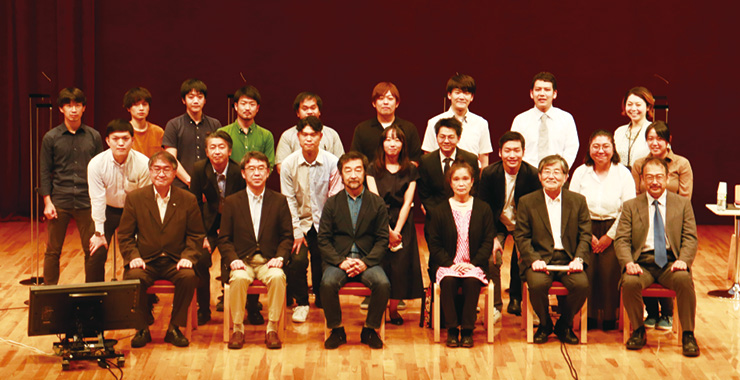
A cumulative total of over 2,500 people took part in this event under the theme of “Universities to Grow Social Impact” Welcoming Shigeru Aoyagi, Director of the Asia and Pacific Regional Bureau for Education of UNESCO Bangkok, participants actively discussed the initiatives for SDGs and their efforts to achieve the SDGs.
At the first joint symposium with Seoul National University, experts made presentations in three breakout sessions, "Medicine,""Environmental and Social Sustainability at Different Spatial Scales," and "Materials Science and Engineering," providing an opportunity to further develop cooperation between the two universities.
Dr. Tetsu Nakamura was a graduate of the School of Medicine of Kyushu University and had devoted himself to support medical activities and irrigation projects in Afghanistan and Pakistan over a prolonged period.
A dialogue session that conveys by students the late Dr. Nakamura's will, "Walk together, live here, and illuminate the future," was held on the last day of the Asia Week.